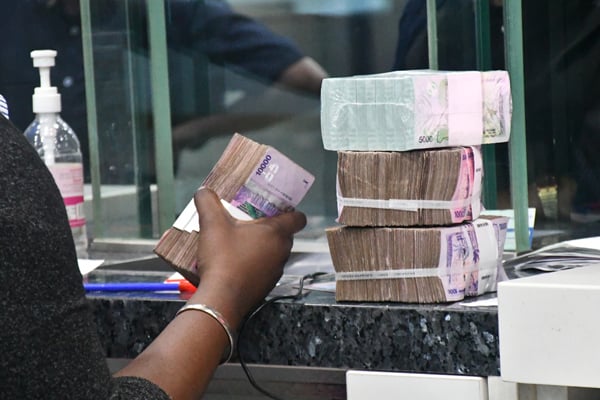Busia traders find themselves in a predicament as they face a surplus of oranges due to the devaluation of the Kenyan shilling. The decline in the currency’s value has created challenges for these traders, who are now struggling to sell their abundant stock of oranges.
The decline in the value of the Kenyan shilling has adversely affected the business prospects of these Busia traders. With the currency’s decreasing value, the market dynamics have shifted, making it difficult for them to sell their massive stock of oranges. As a result, they find themselves stuck with tons of fruit and a dwindling customer base.
The devaluation of the Kenyan shilling has had a profound impact on the cross-border trade between Busia and Kenya. Previously, these traders relied on a vibrant market in Kenya, where the purchasing power of Kenyan consumers was higher.
However, the depreciating currency has led to a decline in consumer spending, causing a ripple effect on the demand for oranges.
In Busia, the surplus of oranges has become a cause for concern among traders, who are now brainstorming strategies to alleviate the situation.
Some have attempted to reduce prices in the hope of attracting buyers, but the lack of demand remains a persistent challenge.
The traders are also exploring alternative markets and distribution channels to diversify their customer base and find potential buyers for their excess produce.
Local agricultural authorities and trade associations are working closely with the affected traders to identify viable solutions.
Efforts are being made to mitigate the impact of the depreciating currency and facilitate the sale of surplus oranges. These measures include exploring export opportunities to neighboring regions where the value of the Kenyan shilling may not have such a significant impact.
Furthermore, the situation has prompted a renewed focus on enhancing local processing and value addition capabilities. By investing in processing facilities, traders can reduce post-harvest losses, extend the shelf life of oranges, and explore new avenues for revenue generation.
However, stakeholders are actively collaborating to find solutions and minimize the impact of this economic challenge. Through diversification, exploring alternative markets, and investing in processing facilities, traders hope to navigate through this period of uncertainty and restore balance to their businesses.











